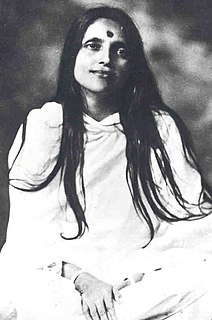A Quote by Eula Biss
There's this tendency to think of the individual and the collective are somehow at odds or separate. But I think that's really false. We're all both. And when the individual suffers, the collective suffers, and vice versa.
Quote Topics
Related Quotes
The main characteristic of collectivism is that it does not take notice of the individual's will and moral self-determination. In the light of its philosophy the individual is born into a collective and it is "natural" and proper for him to behave as members of this collective are expected to behave. Expected by whom? Of course, by those individuals to whom, by the mysterious decrees of some mysterious agency, the task of determining the collective will and directing the actions of the collective has been entrusted.
Just as there is no such thing as a collective or racial mind, so there is no such thing as a collective or racial achievement. There are only individual minds and individual achievements-an d a culture is not the anonymous product of undifferentiate d masses, but the sum of the intellectual achievements of individual men.
Participation in the collective life of the polis both restrains the extraordinary individual and enlarges the ordinary individual, allowing him to participate in the extraordinary. An individual can achieve participatory excellence via the accomplishments of the polis and need not always be caught up in the agnostic struggle to outdo his peers.
Anyone who is kind to man knows the fragmentariness of most men, and wants to arrange a society of power in which men fall naturally into a collective wholeness, since they cannot have an individual wholeness. In this collective wholeness they will be fulfilled. But if they make efforts at individual fulfilment, they must fail for they are by nature fragmentary.
A “collective” mind does not exist. It is merely the sum of endless numbers of individual minds. If we have an endless number of individual minds who are weak, meek, submissive and impotent – who renounce their creative supremacy for the sake of the “whole” and accept humbly that the “whole’s” verdict – we don’t get a collective super-brain. We get only the weak, meek, submissive and impotent collective mind.
Truth is found neither in Marxism nor in traditional capitalism. Each represents a partial truth. Historically capitalism failed to see the truth in collective enterprise, and Marxism failed to see the truth in individual enterprise. Nineteenth century capitalism failed to see that life is social and Marxism failed and still fails to see that life is individual and personal. The Kingdom of God is neither the thesis of individual enterprise nor the antithesis of collective enterprise, but a synthesis which reconciles the truths of both.
The only thing that really matters is that there be an action of goodness, love and intelligence in living. Is goodness individual or collective, is love personal or impersonal, is intelligence yours, mine or somebody else? If it is yours or mine then it is not intelligence, or love, or goodness. If goodness is an affair of the individual or of the collective, according to one's particular preference or decision, then it is no longer goodness.

































